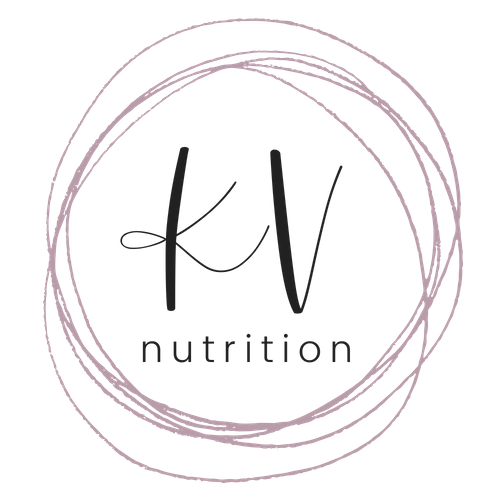“Health Foods” that are not Healthy
We have so many food options that can confuse us about what’s healthy and what isn’t. From fruit juices with vitamins to low-calorie snacks that will help you lose weight. Many people assume that if something has a healthy buzzword on the label such as no trans fat, no added sugar, or all-natural, that it is automatically healthy food. However, that is not always the case. In the food industry, many healthy foods are no better than their alternatives. Some have little nutritional value and some actually contain harmful chemicals. We need to go beyond the labels and scrutinize the ingredients. Bread labeled as “whole wheat” or “whole grain,” for example can pack as much as 70 percent-refined flour. The food industry can get away with advertising it as the real deal because it includes some whole grains. Just like when you read a label that says fat-free or cholesterol-free the added ingredients to make it fat-free or cholesterol-free is what is damaging. In its unprocessed form, fat doesn’t make you fat and cholesterol doesn’t clog your arteries.
Here are 9 “health foods” that are not really healthy:
1. Fruit Juices: fruit juice sold in grocery stores may have small amounts of real fruit in them, but often they are little more than water, artificial flavor, and sugar. There is no fiber in it, and nothing to stop you from drowning in massive amounts of sugar in a short time. Orange juice for example contains the same amount of sugar as coca-cola.
2. Agave Nectar: this sweetener is touted as a healthy alternative to sugar because it naturally has a low glycemic index. However, the harmful effects of sugar have little to do with its glycemic index. It is harmful primarily because it is loaded with unnatural amounts of fructose. Too much fructose in the diet can cause all sorts of problems, especially in people who don't exercise. The liver metabolizes all fructose. If the liver is full of glycogen the fructose will be turned into fat which can cause all sorts of metabolic problems like resistance to the hormones insulin and leptin, which will ultimately lead to obesity and diabetes.
3. Sports Drinks: these were designed for athletes who have just finished an intense training session with massive sweating and glycogen depletion. For this reason, sports drinks contain WATER- to replenish lost fluid, ELECTROLYTES like sodium that was lost via sweat, and SUGAR because athletes need energy after an intense workout. You don't need any additional electrolytes unless you've been doing a very intense workout and most people are already eating too much sugar. 1 bottle of Gatorade contains over 30 grams of sugar.
4. "Heart Healthy" Vegetable Oils: As the fear of saturated fat took hold of the world, consumption of all kinds of nasty ingredients increased. Prime examples are industrial seed and vegetable oils like soybean, corn, and cottonseed oil. These oils are extracted from seeds using very harsh processing methods and include heat, bleaching, and the toxic solvent hexane. These oils contain very large amounts of omega-6 fatty acids, way more than humans ever consumed throughout evolution. We need small amounts found in meat and nuts. However, if we eat too much like is the case with the Western population, this causes inflammation, which is a leading cause of many chronic diseases.
5. Low-Fat or Fat-Free Foods: fat is not the problem!
When the anti-fat message first came out, food manufactures started producing "healthy" products that were low fat or fat-free. The fat was removed and loaded with chemicals, artificial sweeteners, and massive amounts of sugar. What they basically did was remove the good stuff (fat) and replace it with bad stuff (sugar). This is how they managed to turn perfectly healthy foods like yogurt into harmful products filled with unhealthy ingredients. These are highly processed products loaded with sugar and other harmful substances.
6. Gluten-Free Junk Foods: Food manufactures have caught up on the trend that a huge part of the population wants to cut back on gluten or go gluten-free, so they have started offering all sorts of gluten-free "health foods." The problem with these foods is that they're usually not healthy at all. Instead of a gluten grain, they're made with other starches like potato starch or tapioca starch. Those starches are usually highly refined, void of nutrients, and spike blood sugar fast, just like wheat. These products are also often loaded with sugar and other harmful or artificial chemicals. This does not apply to foods that are naturally gluten-free like fruits, vegetables, quinoa, millet, brown rice, buckwheat, oats, amaranth, teff…just to name a few.
7. Margarine and Fake Butters: margarine- it used to be loaded with trans fats, now it tends to contain processed vegetable oils instead. Butter consumption went down, margarine consumption went up. The problem is: butter is healthy, margarine is not. Margarine is a processed food that contains unhealthy, artificial ingredients. Avoid it. Use real butter instead.
8. Low Carb Junk Foods: some people have now started cutting back on carbohydrates thinking they are the root of all evil. Food manufactures have caught notice of this and have brought all sorts of low-carb junk foods to the market. Even though something is low in carbohydrates and can help you lose weight, it may still be very unhealthy for you. A prime example of this is the Special K bars. They are a highly processed product full of sugar and over half a dozen ingredients you can't even pronounce. Just check out the ingredient list. If you're going to do a low-carb diet, stick to real, unprocessed foods.
9. "Healthy" Breakfast Cereals: most highly processed breakfast cereals are often loaded with sugar and refined carbohydrates. The manufactures then fortify them with some synthetic vitamins and put tiny amounts of whole grain in the mix, then market their products as healthy. Don't be fooled by the labels- low-fat, fat-free, whole grain, etc. Just check the ingredients list on these products; they are normally loaded with sugar. Starting the day with a high sugar cereal will set you up for a blood sugar crash later in the day, followed by hunger, cravings, and another high-carb meal.




